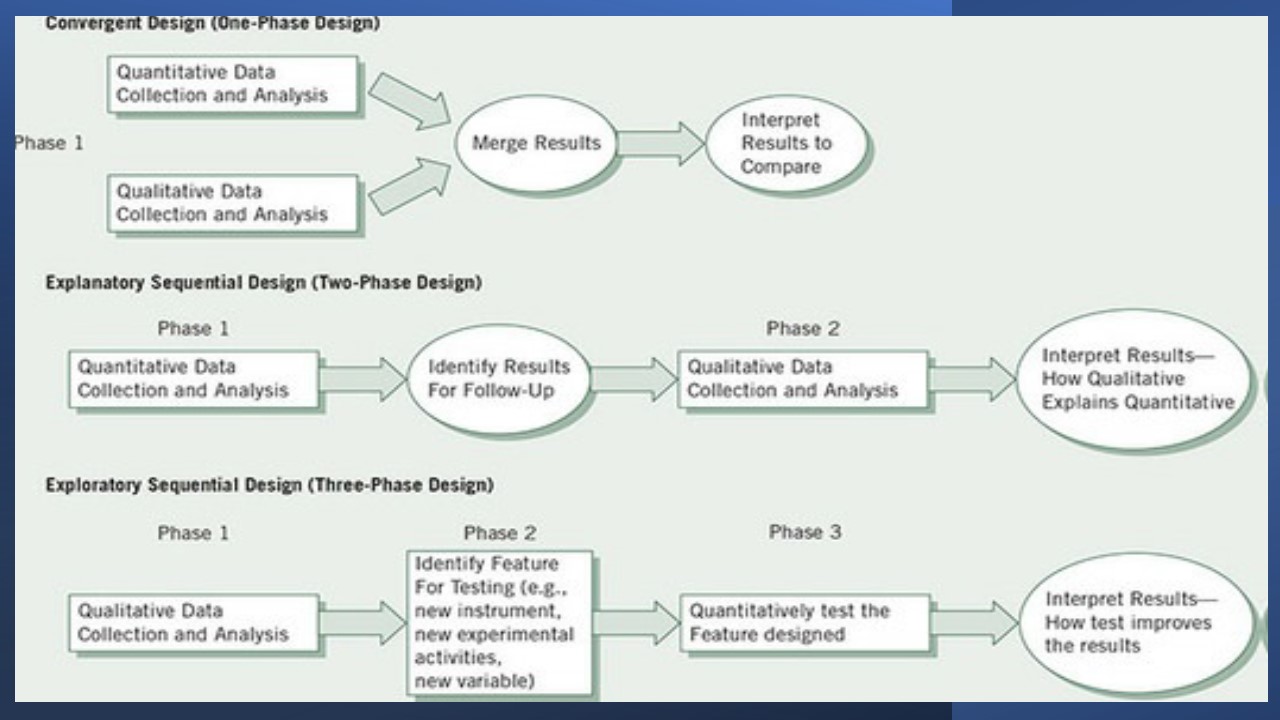การวิจัยแบบผสมผสานวิธีทางพุทธบริหารการศึกษา
Main Article Content
บทคัดย่อ
การวิจัยทางพุทธบริหารการศึกษาเป็นกระบวนการหรือเทคนิควิธีในการแสวงหาความรู้ความจริงที่น่าเชื่อถือ ข้อสรุป วิธีการแก้ปัญหาแบบใหม่ องค์ความรู้ใหม่ หรือนวัตกรรมที่เกี่ยวข้องกับกิจกรรมการบริหารการศึกษาที่บูรณาการหลักพุทธธรรมได้อย่างสอดคล้องเชื่อมโยงกันโดยมีจุดมุ่งหมายที่ชัดเจน และดำเนินการอย่างต่อเนื่องในการขยายองค์ความรู้ให้ลุ่มลึกนำไปสู่ประสิทธิผลการบริหารภายใต้หลักศีลธรรมและจริยธรรมที่ผู้บริหารและผู้ร่วมงานมีความสุขพึงพอใจร่วมกัน จึงสอดคล้องกับการวิจัยแบบผสมผสานวิธีซึ่งเป็นวิธีการค้นหาคำตอบจากการรวบรวมข้อมูลทั้งวิธีการเชิงคุณภาพและเชิงปริมาณ ซึ่งจะเกี่ยวข้องกับหลักปรัชญาที่นักวิจัยเก็บรวบรวมข้อมูล วิเคราะห์ข้อมูล และมีการผสมข้อมูลทั้งในเชิงปริมาณและเชิงคุณภาพในการศึกษาแต่ละครั้ง จึงมีความหมายมากกว่าการเก็บรวมรวมข้อมูลเชิงปริมาณ และเชิงคุณภาพ โดยจะใช้ทั้งสองวิธีควบคู่กันไปเพื่อทำความเข้าใจที่กว้างขวางและลุ่มลึกยิ่งขึ้นจึงเป็นการศึกษาที่มีความสำคัญมากกว่าการวิจัยเชิงคุณภาพหรือการวิจัยเชิงปริมาณเพียงอย่างเดียว และนำเสนอการวิจัยแบบผสมผสานวิธีทางพุทธบริหารการศึกษา 3 แบบหลัก คือ แบบผสมผสานคู่ขนาน แบบเชิงอธิบายเป็นลำดับ และแบบเชิงสำรวจเป็นลำดับ
Article Details
เอกสารอ้างอิง
กระทรวงศึกษาธิการ. (2559). แผนพัฒนาการศึกษาของกระทรวงศึกษาธิการ ฉบับที่ 12 (2560 – 2564). http://waa.inter.nstda.or.th/stks/pub/2017/20170313-Education-Development-Plan-12.pdf
ชาย โพธิสิตา. (2549). ศาสตร์และศิลป์แห่งการวิจัยเชิงคุณภาพ. (พิมพ์ครั้งที่ 2). กรุงเทพฯ : อมรินทร์พริ้นติ้งแอนด์พับลิชชิ่ง.
ทศพร ศิริสัมพันธ์. (2560). ความเป็นผู้ประกอบการสาธารณะและการสร้างนวัตกรรมภาครัฐ. https://www.opdc.go.th/uploads/files/2560/G_InnovationIab19660_2.pdf
ราชกิจจานุเบกษา. (2553). พระราชบัญญัติการศึกษาแห่งชาติ พ.ศ. 2542 แก้ไขเพิ่มเติม (ฉบับที่ 2) พ.ศ. 2545 และ (ฉบับที่ 3) พ.ศ. 2553. https://www.mwit.ac.th/~person/01-Statutes/NationalEducation.pdf
ราชบัณฑิตยสถาน. (2555). พจนานกรมศัพท์ศึกษาศาสตร์ ฉบับราชบัณฑิตยสถาน. กรงเทพฯ : อรุณการพิมพ์.
สภานโยบายวิจัยและนวัตกรรมแห่งชาติ. (2560). ยุทธศาสตร์การวิจัยและนวัตกรรม 20 ปี (พ.ศ. 2560 – 2579). http://www.nric.or.th/
สัมฤทธิ์ กางเพ็ง และสรายุทธ กันหลง. (2558). การวิจัยเชิงปฏิบัติการแบบมีส่วนร่วม (Participatory Action Research). มหาสารคาม : เอกสารประกอบการสอนคลินิกวิชาการหลักสูตรปรัชญาดุษฎีบัณฑิต สาขาวิชาการจัดการศึกษาเพื่อพัฒนาท้องถิ่น มหาวิทยาลัยราชภัฏมหาสารคาม.
สัมฤทธิ์ กางเพ็ง และสรายุทธ กันหลง. (2560). การวิจัยแบบผสมวิธี : กระบวนทัศน์การวิจัยในศตวรรษที่ 21. (พิมพ์ครั้งที่ 3). มหาสารคาม : อภิชาติการพิมพ์.
สำนักงานคณะกรรมการกฤษฎีกา. (2560). พระราชบัญญัติกำหนดแผนและขั้นตอนการกระจายอำนาจให้แก่องค์กรปกครอง ส่วนท้องถิ่น พ.ศ. 2542. http://www.lp-pao.go.th/Plan/images/book/Book-005.pdf
สำนักงานเลขาธิการวุฒิสภา. (2560). รัฐธรรมนูญแห่งราชอาณาจักรไทย พุทธศักราช 2560. http://click.senate.go.th/
สิน งามประโคน. (2560). พุทธบริหารการศึกษา: แนวคิดทฤษฎีและการบูรณาการ. วารสารนวัตกรรมการศึกษาและการวิจัย, 1(2), 103-116.
องอาจ นัยพัฒน์. (2549). วิธีวิทยาการวิจัยเชิงปริมาณและเชิงคุณภาพทางพฤติกรรมศาสตร์และสังคมศาสตร์. พิมพ์ครั้งที่ 2. กรุงเทพฯ : สามลดา.
อุทัย ดุลยเกษม. (2545). วิธีวิทยาการวิจัย : เครื่องมือหรือวิธีคิด. วารสารวิธีวิทยาการวิจัย. 15(3), 279-289.
Australian Government. (2017). Innovation 101. https://innovation.govspace.gov.au/ innovation-101
Creswell J. W. and Clark, V. P. (2007). Designing and Conducting Mixed Methods Research. New Delhi : SAGE.
Creswell, J. and Clark, V. (2018). Designing and Conducting Mixed Methods Research. 3rded. Thousand Oak: SAGE.
Creswell, J. and Guetterman, T.C. (2019). Educational Research: Planning, Conducting, and Evaluating Quantitative and Qualitative Research. 6th ed. Saddle River: Pearson.
Creswell, J. W. (2009). Research Design : Qualitative, Quantitative and Mixed Methods Approaches. (3rded), Thousand Oaks, CA : SAGE.
Creswell, J.W. (2014). Research Design : Qualitative, Quantitative, and Mixed Methods Approaches. (4th ed). Thousand Oaks, CA : SAGE.
Creswell, J.W., & Creswell, J.D. (2018). Research Design: Qualitative, Quantitative, and Mixed Methods Approaches. 5th ed. Thousand Oak: SAGE.
Creswell, J.W., & Creswell, J.D. (2022). Research Design: Qualitative, Quantitative, and Mixed Methods Approaches. 6th ed. Thousand Oak: SAGE.
Denzin N. , and Lincoln Y. (2011). The SAGE Handbook of Qualitative Research. Editors. Thousand Oaks : CA SAGE.
Guba, E.G. (1990). The Alternative Paradigm Dialog.In Guba, E.G. (Ed.) The Paradigm Dialog. Newbury Park, CA : SAGE.
Hill, C and Lynn, L. (2016). Public Management Thinking and Acting in Three Dimensions. Thousand Oaks, CA: SAGE.
Jonker, J. and Pennink, W.B. (2010). The Essence of Research Methodology : A Concise Guide for Master and PhD Students in Management Science. Heidelberg : Springer.
Jonker, J. and Pennink, W.B. (2010). The Essence of Research Methodology : A Concise Guide for Master and PhD Students in Management Science. Heidelberg: Springer.
Kemmis, S., McTaggart, R., and Nixon, R. (2014). The Action Research Planner: Doing Critical Participatory Action Research. New York : Springer.
Kuratko, D. F. (2012). Innovation Acceleration : Transforming Organizational Thinking. Boston : Pearson.
Oxford University Press. (2023). Oxford Dictionaries. http://oxforddictionaries.com/definition/english/research?q=research
Patton, M.Q. (1990). Qualitative Evaluation and Research Methods. (2nd ed). Newbury Park, CA : SAGE.
Rogers, E. M. (2003). Diffusion of Innovations. New York : Free Press.
Schwant, T.A. (2002). Dictionary of Qualitative Inquiry. (3rd ed). Thousand Oaks, CA: SAGE.
The United Nations (UN). (2017). The Sustainable Development Goals Report 2017. https://unstats.un.org/sdgs/files/report/2017/The Sustainable Development Goals Report 2017.pdf
UNESCO. (2017). Education for Sustainable Development Goals: Learning Objectives. http://unesdoc.unesco.org/images/0024/002474/247444e.pdf


